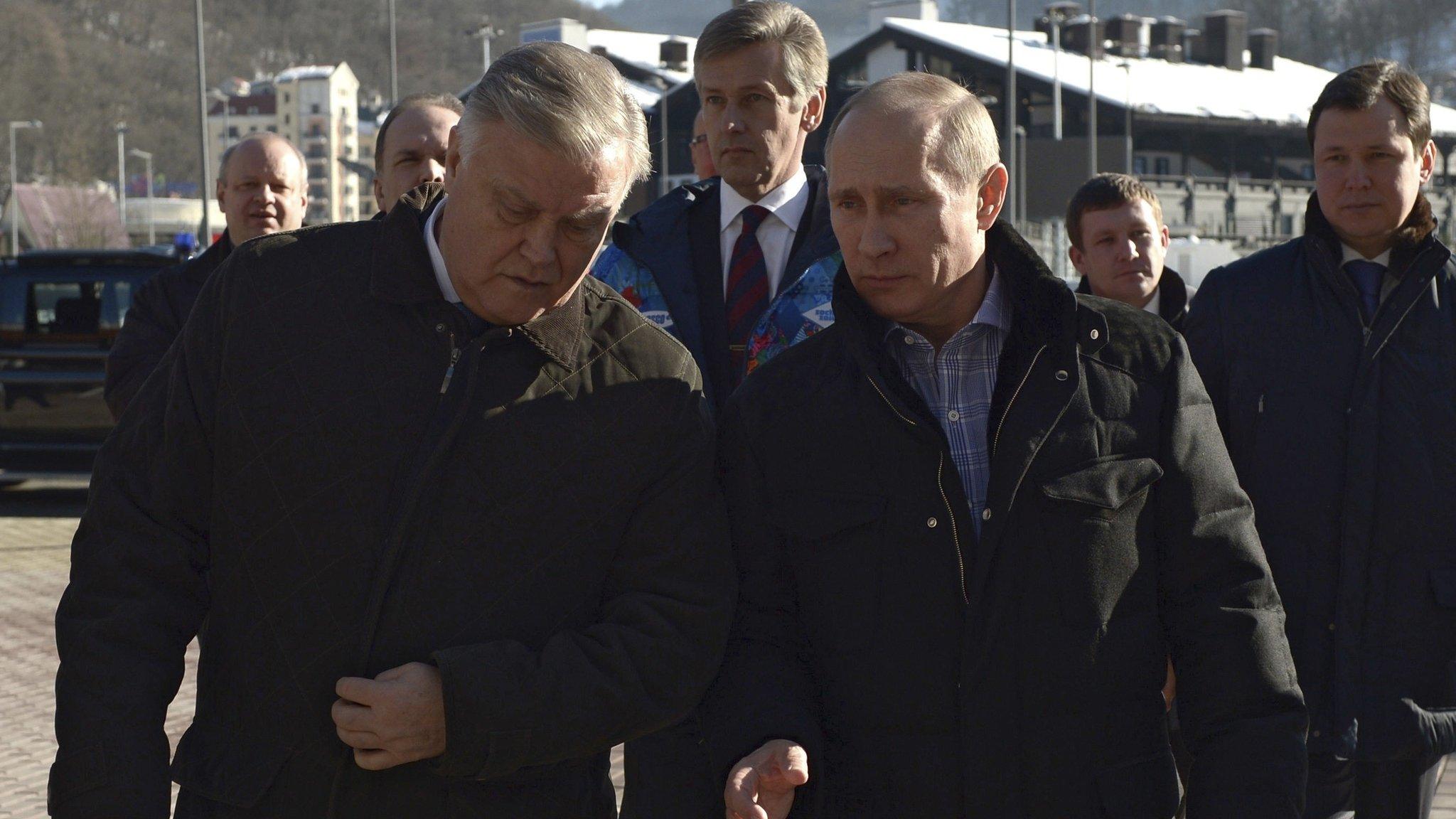Provincial Russia feels economic squeeze
- Published
What effect are Russia's economic woes having on everyday life?
The trees lining the route to Ryazan are covered in frost, as if sprinkled with icing sugar in a Russian fairy tale.
But the harsh reality in Russia these days is economic gloom: the rouble keeps falling, prices keep rising and foreign investment is drying up. Lower oil prices and Western sanctions seem to have the Russian economy in a stranglehold.
I took the M5 motorway out of Moscow to investigate the impact of that on everyday life.
We pass a village called Gazoprovod - or "Gaspipeline". Then Lukovitsy - Russia's cucumber capital. Eventually we arrive in Ryazan.
In 1,000 years this town has been invaded, burnt, battered by war and revolution and economic chaos - like Russia itself. But it has always survived, ready for the next challenge.
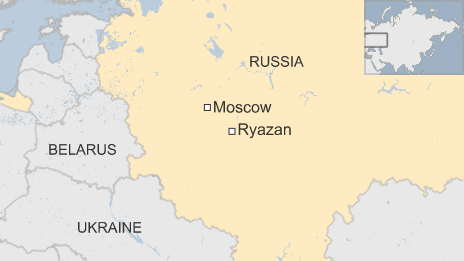
Feeling the pinch
In a Ryazan supermarket I meet teacher Yana Kindeyeva. She's doing her weekly shop and - with Russia on the brink of recession - she's counting every kopeck.
"Prices for everything have gone up," Yana tells me. "It's not only products, but expensive things like cars or furniture. We will celebrate the new year just here at home, instead of going to Europe - because the prices for holidays have also risen."
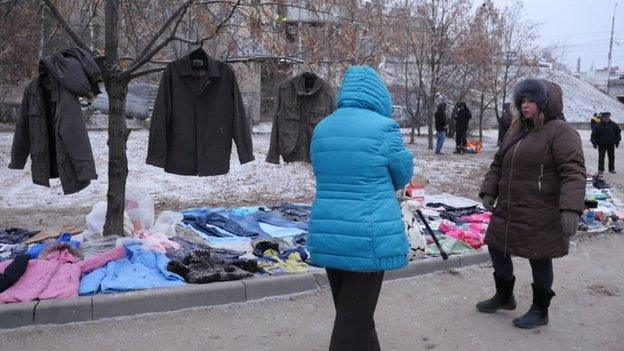
Residents in Ryazan's local flea market are selling anything they can find
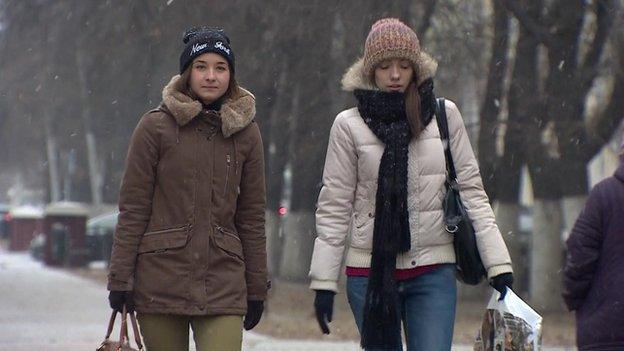
Russians have seen their currency fall by 40% against the dollar since the start of the year
Yana invites me home to meet her mum Irina and grandma Larisa. The table is bursting with cups of piping hot tea, cream cakes and chocolate biscuits. No economic crisis has ever cancelled Russian hospitality.
Irina proudly shows off a tin of "English Tea" in the shape of a London bus. Politicians in Russia and the West talk a lot about the new "Cold War". But in this cosy apartment, the Kindeyev family accord me the warmest reception.
Irina and Larisa have experienced economic upheavals in the past. They are concerned. But they're not panicking.
"Russians always cling on to hope that things will be OK, that's in our soul," Irina tells me. "We have a saying in Russia: hope is the last thing to die."
'Containing Russia'
But whom do the Kindeyevs hold responsible for Russia's current economic difficulties? Not President Vladimir Putin.
"We blame mostly local officials," Yana says.
"It is difficult, maybe, for the president to control everything. We believe we should solve the problems at the local level and then go higher. People believe in the president, even when life gets tough."
Yana pours me some more tea and explains - in English - why she believes Western sanctions are not connected to the conflict in Ukraine.
"I think other countries felt the power of Russia and, of course, they wanted somehow to put some limits on it, in order that we do not grow very much. That's why they put the sanctions. It is not the question of the Crimea. We just returned what had been ours."
The Kindeyev family's faith in President Putin has deep roots. Russians trusted the tsars; many believed in the Soviet revolutionary Lenin, then Stalin. Today more than 70% of Russians approve of the way Mr Putin is running their country.
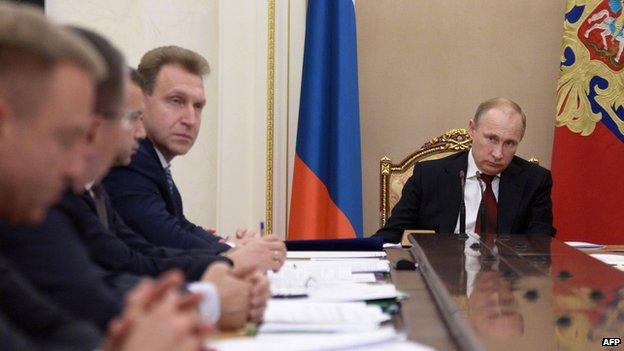
Vladimir Putin has been in charge since 1999 as president or prime minister
Weaker rouble
In the 15 years that Vladimir Putin has been in power, as president and prime minister, he has constructed a political system that gives him all the power, without any of the responsibility. When things go wrong, it is local officials, or the West, that get the blame. Not him.
But Russian history shows that when things go very wrong, that can change.
I meet a Ryazan businessman called Zhenya. He is worried by Western sanctions and falling oil prices and he is losing faith in his government.
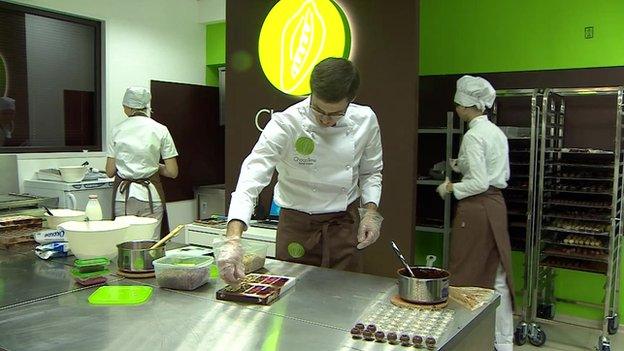
Opening a new business in Russia is proving hard with the rouble falling
"I'm not sure in the future. None of us can suppose what will happen in some months."
I tell Zhenya that Russia's government says that even if oil falls below $60 a barrel that is nothing to worry about.
"For them, maybe, it's not," Zhenya replies. "But for ordinary people it is a reason to worry. Because people's income will decrease a lot."
Across town, in the kitchen of his brand new cafe, young entrepreneur Maxim Gordeyev is sprinkling strawberries and raisins on to deliciously thick hand-made chocolate. Maxim realises this is not the sweetest moment to open a new business in Russia.
"It's a difficult time," Maxim says. "We're certainly affected by the fluctuations in the currency, because we buy our raw materials abroad, in Colombia. And because the rouble is falling, people have less money to spend. Perhaps as a result my business will grow more slowly. But I think it will grow."
Cold and angry
At the flea market in Ryazan, it is -10C. But people are still selling: anything they can find.
Laid out in the snow are old slippers, tablecloths, pots of nail polish and a steam iron. The sellers here are struggling to get by. When I chat to them, some here blame the West. One man rants on at me about a "Zionist conspiracy". But not Yevgenia. She feels the real problem is closer to home.
"Ukraine is sucking all our resources," she tells me. "It's all very well our government sending humanitarian aid there. But we should be getting some of that flour and sugar here. Do you think we're standing here because life is good?"
As I talk to Yevgenia, I begin to wonder: as the economic situation here worsens, will more Russians join the dots between Ukraine and what's happening here? Will they start to see a link between Russia's annexation of Crimea and the current drop in their living standards?
If so, that may lead to an uncomfortable question: does the "good tsar" have bad judgement?
- Published4 December 2014
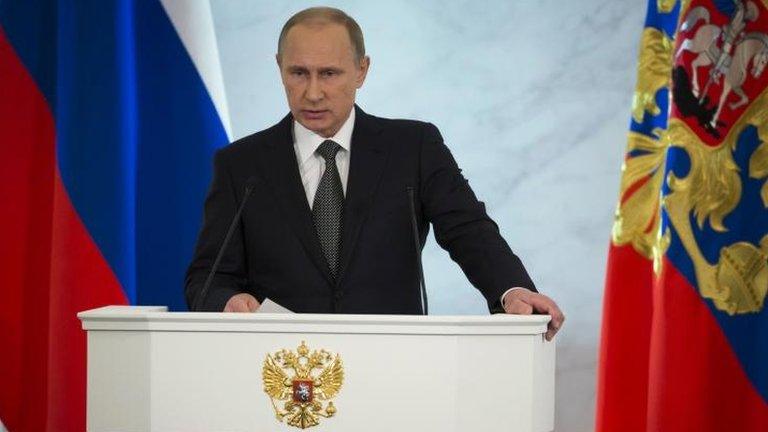
- Published4 December 2014
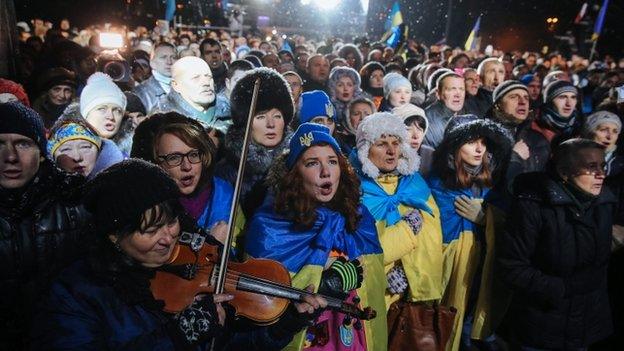
- Published2 December 2014
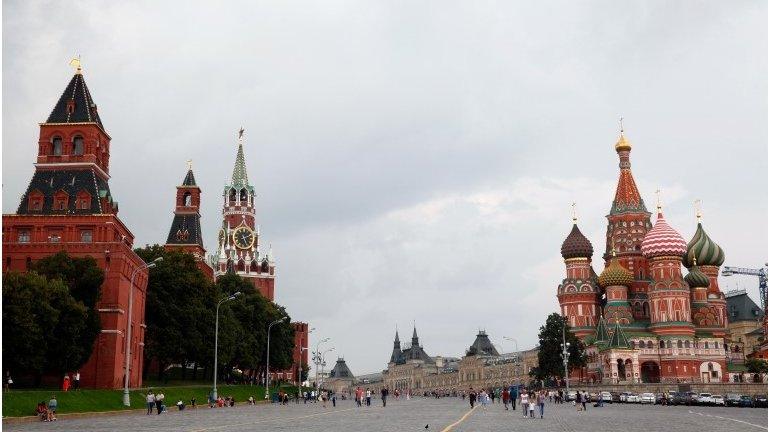
- Published19 December 2014
